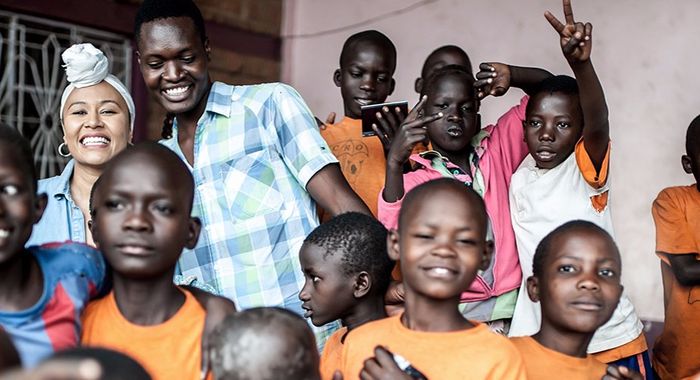Every year since 1988, World AIDs Day (WAD) has fallen on the 1st of December.
WAD is an international celebration, dedicated to raising awareness of human immunodeficiency viruses (HIV) and acquired immunodeficiency syndrome (AIDS) alongside celebrating the lives of many who have died from the deadly disease alongside acknowledging the strides that have been made to improved HIV care.
Across the globe, thousands of people unite yearly to hold events, discussions, and support initiatives as a part of a subtle reminder that there is still work needed to eliminate HIV in the long term.
What is HIV?
HIV is a virus that can be acquired through unprotected sex, through mother to child during childbirth and through sharing needles, however, HIV can be prevented through tools such as post-exposure prophylaxis (PEP), pre-exposure prophylaxis (PrEP) and condoms, and regular STI testing can help with early detection of the virus should someone become infected, alongside sexual health awareness-raising activities such as poster campaigns, and leaflets which help to reduce stigma and start healthier conversations.
Their Story, Your Choice (TSYC), is a perfect example of informed and effective HIV awareness resources. The collection of interactive digital films made by Brown Boy Productions for Terrence Higgins Trust and funded by Comic Relief and the MAC AIDS Fund allows viewers to make their own choices about how the stories of each character should play out, thereby helping them to navigate through the dilemmas of HIV. Takudzwa Mukiwa, Head of Social Marketing Programmes at Terrence Higgins Trust (THT) and creator of the concept for the films, spoke to us more about the purpose, process and power of the TSYC project.
“We always hear that HIV medication has advanced, but we never really get to see the experiences of those who are living day in day out with the virus and how they navigate life. Through the films, we really wanted to convey human emotions and stories that people could connect and relate to, but also for the films to be used as a starting point for discussions about HIV and sexual health.” says Taku.
“Prior to working for THT, I worked in Zimbabwe using theatre as a tool for social change. Here we worked with communities and engaged them in the theatre process and provided them with the opportunity to use theatre to discuss and communicate any range of topics locally in their community.”
“I think the films we’ve created are very different from regular films and this is intentional because I know that even as we’re watching films as viewers we can become detached. But I wanted the process to have an emotion, but also a cognitive process by disrupting what is being watched on screen and inviting the viewers to become actively engaged in the decision-making process for the characters.”
“I’ve always found that theatre really motivates people to engage with the emotions behind the decisions they make and this was what I wanted to create with the films. Theatre is great, but it doesn’t allow you to have reach and scale, but the digital aspect of these films allows them to be shared and accessed widely which is exactly the outcome we were trying to achieve.”
Data collected from the show at the end for the first year pilot reveals that 87,661 people landed on the first scene of a film with an average of 27% of people watching to the end of a story, in addition to the film generating 3,565 social media reactions, comments, and shares which are all a testament to how well and how widely the short films have been received both locally and globally.
Additionally, THT has also been able to track that at the end of the pilot phase, 101 self-testing HIV test kits were ordered by viewers as a result of watching the films. Of this number, 59 service users identified as being from the Black African community, in addition to 692 referrals being made to HIV testing information pages and test finder.
The content for the film was informed by Black African people living with HIV (PLWHIV) in the UK one of which was Bakita Kasadha, who is writer and researcher at Terrence Higgins Trust, she says “Art has a powerful way of humanising misunderstood experiences and the Their Story Your Choice films do just that. The films show that there is no one experience of being Black and living with HIV. And the interactive elements allow the viewer to put themselves in our shoes.”
The films featured topics such as disclosure in relationships, late diagnosis, dating, and abuse. As we know, anyone can become infected with HIV, but data taken from Public Health England “HIV in the United Kingdom: Towards Zero HIV transmissions by 2030” report highlights that in 2018, Black African men and women accounted for 44% of newly diagnosed HIV positive adults who acquired HIV heterosexually, which suggests that the Black African community in the UK continues to be disproportionately impacted by HIV.
“The films are not intended to offer solutions or the right way to respond to specific situations, but an opportunity for people to make a decision, consider the impact of their choices, and also get clued up. I feel that people are likely to respond differently to people who are living with HIV if they have some level of awareness of what it means to live with the virus.”
Unfortunately, there is still stigma and misinformation that exist around what it means to live with HIV as well as how it is transmitted, but if we can continue challenging and disputing these myths and creating visibility for those who are living, surviving, and thriving with the virus, we can create better sexual health outcomes.
“U=U is great, but what does that actually mean in a relationship? It’s not always about the science; the films show us that it is also about trust and respect. I know that some people watching the films have had to confront deep-seated stigma around HIV exceptionalism and how differently some people view HIV.”
“The films are not dramatic, but they are drama. From my experience, good art is what works, and just because it is an issue-based drama it shouldn’t be done poorly or preachy. We were lucky to have worked with really high-profile actors and of course work with Leon Lopez who is a renowned film director and has worked on soaps such as Eastenders, Hollyoaks, and Emmerdale.
“I think we should be taking every opportunity possible to have conversations about HIV. Today, people are engaged with so many different types of media, so we are all competing for the attention of viewers. We need to incorporate HIV awareness into general life and not just in sexual and reproductive health spaces, we need to ensure we are maximising these opportunities by sharing information in a range of digital ways such as films but also vlogs and podcasts.”
Moving forward Taku, THT, and Brown Boy Productions are working towards a legacy project where they aim to feature the stories of Black and Asian gay men as they navigate the dilemmas of HIV.
Although the UK has continued to meet the United Nation Programme on HIV and AIDs target of 90-90-90 for a third consecutive year, with 94% of people living with HIV being diagnosed, 98% of those diagnosed being on treatment, and 97% of those on treatment having an undetectable viral load, there will always be opportunities to promote and provide testing and screening across the country. Recent data from PHE suggest that last month almost 300,000 people declined to have an HIV test when they attended a specialist sexual health service. This World AIDS Day is an important reminder to us all of the importance of fund-raising, sexual health education, access to services, and HIV prevention tools which are all key to reducing the rates of HIV transmission long term.
This year, show your solidarity with those worldwide who are living with HIV by purchasing a red ribbon online or in a local supermarket.
Watch and engage with the Their Story, Your Choice, and many more interactive and important initiatives.
Share widely, discuss with friends and family, and make a commitment to raising awareness of HIV.





